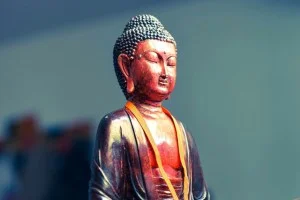In my work with leaders and teams, the first thing I address is emotional triggers. We all feel negative feelings from time to time, especially when we work with other human beings. Differences in personality, style, role, position, status, etc. can play a part in why we get emotionally upset by others. This is natural. Through self-awareness of what triggers you and why, you can begin to evoke different strategies to deal more effectively with them, thus becoming more of a master of your energy and a constructive force in the workplace. In pondering my work with others (and with myself as I am constantly practicing as well) I realize it is a possibility to fall into the blame game. When we blame others we feel a little bit better because “they made me feel upset”. In my estimation however, this is the second biggest hoax of all time. If I ask you to raise your hand, and you do it, does that mean that I made you do it? No. I simply asked and you cooperated. You could easily have said no. When others do things that are not ideal for you, are they making you feel a certain way? Or are you reacting to something that has happened? There is a difference. In the first scenario you are at the whim of others’ actions and feel as if the reaction you have is out of your control. You, in essence become a victim of circumstance. In the second scene you realize that you are having a reaction, and you own it fully. The situation may still not be ideal but there is a self-awareness that for some reason you are having a reaction. This is a more powerful position. When you hear yourself saying either out loud or to yourself that someone is making you feel a certain way, this is the time to stop the lie. The jig is up. You are still feeling what you feel, but there is more creative potential in owning your reaction. Unfortunately, patterns of triggers and reactions develop over time and have solid roots. By beginning to own more our reactions, such as “I am feeling this in relation to that” instead of “she is making me feel this way” you can start to cut the roots away. By understanding that you are responsible for your well-being you can start to ask yourself why this person or situation upsets you and what would be ideal in the future. Sometimes others remind us of the unwanted aspects of ourselves, what psychology calls our shadow. This has nothing to do with the other person, and everything to do with the unresolved emotional energy and beliefs locked inside. Secondly, you can begin to envision what you really want in a situation and use skillfulness in communication to potentially get your needs or vision met. But don’t take my word for it, test this theory out. The next time you feel an adverse emotion in a situation with another person, say to yourself “I am feeling this in relation to that. Why does it bother me so much? What’s the learning here? Who do they remind me of? What do I want to happen in the future?” These question will help you release the victim and look to a more generative and creative position. This can be a truly powerful stance. Oh, and the first biggest lie of all time? That you shouldn’t lie. I will explore this next time.


